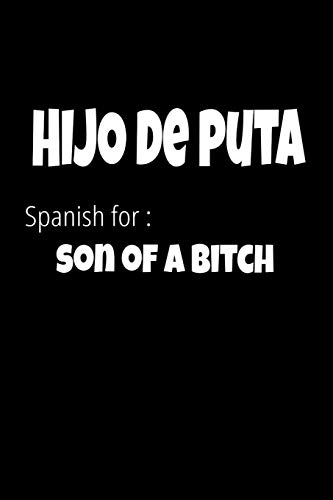In the world of language, certain words carry weight beyond their literal meaning. One such phrase is “hijo de puta,” a Spanish expression that has captured attention across cultures for its strong connotations and varied usage. This article explores the cultural significance, historical roots, and modern-day implications of this phrase within the context of Spanish-speaking communities.
The Origins of ‘Hijo De Puta’
The phrase “hijo de puta” translates to “son of a b*tch” in English. It’s a common swear word in many Spanish-speaking countries, often used as an exclamation of frustration or anger. However, its origins are more complex than its surface-level translation suggests.
Historically, the term was used in various contexts, including religious and social settings. In some regions, it was even used to describe someone who had committed a serious offense. Over time, its usage evolved, and it became a widely recognized insult across different cultures.
Cultural Significance
In many Spanish-speaking countries, “hijo de puta” is considered one of the strongest insults a person can use. It’s not just about the words themselves but also the context in which they’re used. The phrase carries a heavy emotional weight, often leading to misunderstandings or conflicts when used inappropriately.
For instance, in some cultures, using this phrase could be seen as a sign of disrespect or aggression, while in others, it might be used more casually among friends. This variation highlights the importance of understanding the cultural nuances behind such expressions.
The Use of ‘Hijo De Puta’ in Everyday Conversations
While “hijo de puta” is a powerful insult, it’s also used in everyday conversations in a more lighthearted manner. In some cases, it’s used to express surprise or disbelief, similar to how “what the hell” might be used in English. For example, if someone hears unexpected news, they might exclaim “¡Hijo de puta!” to convey their shock.
This dual nature of the phrase illustrates how language can be both a tool for communication and a means of expressing emotion. It’s a reminder that words can have multiple meanings depending on the context in which they’re used.
Regional Variations
It’s important to note that the usage of “hijo de puta” can vary significantly from one region to another. In some areas, it might be considered offensive, while in others, it’s more commonly used as a form of expression. For instance, in Mexico, the phrase might be used more frequently in casual conversations compared to Spain, where it might be reserved for more intense situations.
Understanding these regional differences is crucial for anyone looking to navigate the complexities of Spanish language and culture effectively.
The Impact of ‘Hijo De Puta’ on Social Interactions
The use of “hijo de puta” can have significant implications on social interactions. In professional settings, for example, using such a phrase could be seen as unprofessional and may lead to negative consequences. On the other hand, in informal settings among friends, it might be used as a way to bond or express shared experiences.
It’s essential to consider the audience when using such phrases. What might be acceptable in one setting could be completely inappropriate in another. This awareness helps in maintaining respectful and meaningful interactions across different cultural contexts.
The Role of Language in Identity
Language plays a vital role in shaping identity, and expressions like “hijo de puta” are no exception. They reflect the values, beliefs, and social norms of the communities that use them. By understanding these expressions, we gain insight into the cultural fabric of Spanish-speaking societies.
Moreover, the use of such phrases can also serve as a form of resistance or empowerment. In some cases, individuals might use “hijo de puta” to assert their identity or challenge societal norms, highlighting the power of language in shaping personal and collective identities.
Conclusion
In conclusion, “hijo de puta” is more than just a swear word; it’s a reflection of the rich cultural tapestry of Spanish-speaking communities. Its usage, whether as an insult or an expression of surprise, underscores the importance of understanding the context in which words are used.
As we continue to explore the nuances of language, it’s clear that phrases like “hijo de puta” offer valuable insights into the complexities of human communication. By appreciating these expressions, we can foster greater understanding and respect across cultures.
Stay updated with the latest news and insights on cultural expressions and their impact on society.
Author: [Nama Lengkap]
Title/Role: [Jabatan atau keahlian]
Credentials: [Ringkasan kualifikasi atau pengalaman terkait]
Profile Link: [Link profil, opsional]
Sources:
– [Source 1: Trusted Website on Spanish Language and Culture]
– [Source 2: Academic Research on Cultural Expressions]
– [Source 3: Media Coverage on Language and Society]
Internal Links:
– [Link to Article on Spanish Swear Words]
– [Link to Article on Cross-Cultural Communication]
– [Link to Article on Language and Identity]
Image Optimization:
–
–
–
– 
–












More Stories
US Trending News: The ‘Your Mom’ White House: A Trendy Take on Political Humor
Understanding ‘You Got That Right’ in The New York Times: Context and Implications
US Trending News: What’s Next for Will Taylor? Latest Updates and Insights